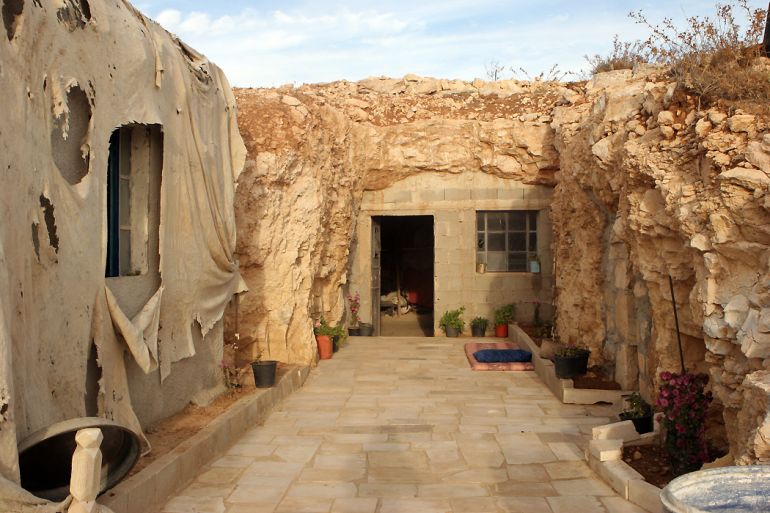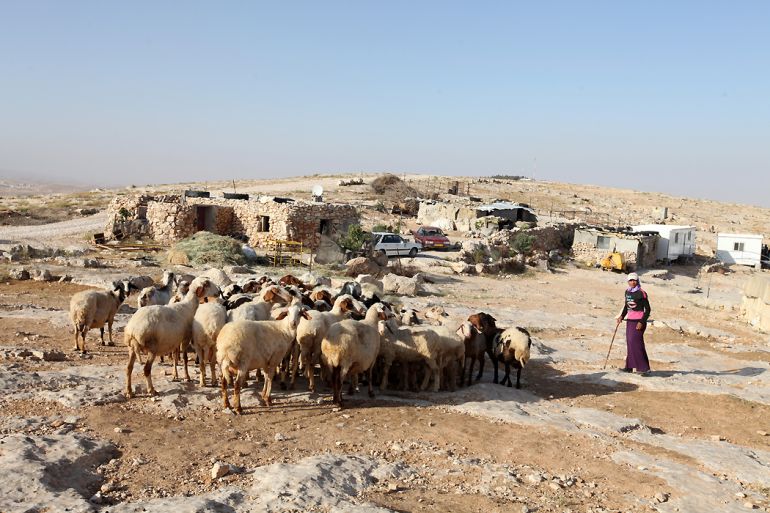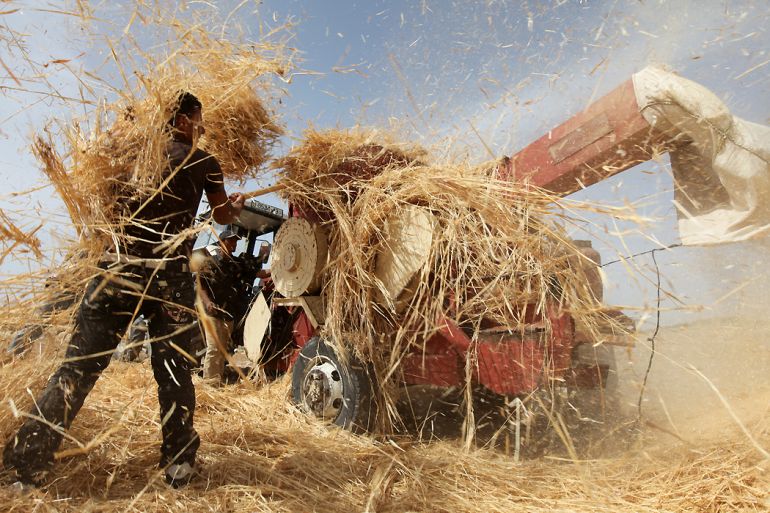In Pictures
The last cave dwellers of Palestine
About 1,500 Palestinians in a dozen West Bank hamlets maintain a unique tradition of cave dwelling.

Masafer Yatta, occupied West Bank – In the district of Masafer Yatta, in the southern part of the occupied West Bank, about 1,500 Palestinians in a dozen hamlets maintain a unique tradition of cave dwelling.
“We live the same way my ancestors used to. It is a very simple life; we live with the seasons, taking care of the flock, harvesting the fields. We collect water from two wells, and a power generator provides electricity,” said Mahmoud Hussein Hamamdi, who lives in Um Faqarah, a cave hamlet where the Israeli military has prevented the building of any new structures.
According to research by Ali Qleibo, a Palestinian anthropologist studying these communities, the tribes from the south of Jerusalem to the outskirts of Beersheba were all cave dweller communities until the 19th century.
“The powerful symbolism of these caves still resonates in the Judeo-Christian-Muslim tradition, as is evident in the Cave of Abraham in Hebron, the Cave of the Nativity in Bethlehem, and the cave under the Dome of the Rock,” Qleibo told Al Jazeera.












